- Home
- Bryce Courtenay
The Family Frying Pan Page 3
The Family Frying Pan Read online
Page 3
‘I shall tell you of my wedding feast so that we may choose a dish to eat tonight, a soup to serve to a prince,’ Anya says as we sit watching The Family Frying Pan bubbling on the fire.
She sighs and begins her story:
I was chosen to be the bride of the landowner’s only son, a peasant girl to compensate for a bloodline that had lost its vigour. My husband-to-be was a poor specimen, with eyes too close and hairy brows that joined across the bridge of his nose. He was rich and needed a male heir, and I was strong and, I suppose, pretty enough. Besides, it was an honour my father, who was a poor man, could not afford to turn down. So, for a good horse and a small cornfield, I was sold to the landowner’s son.
As for myself, I was given no choice in the matter. Love was not a word used easily in our village and the honour and good fortune bestowed on me was thought by all to be most profound. The old women would cackle in my ear, ‘He is ugly, Anya, but think nothing of it. In the dark, between the sheets, who is to tell pretty from ugly? Give him a male heir and one to spare and you can grow fat and live in comfort for the rest of your life.’
The wedding day came and the fat priest joined us together in a chorus of hymns and vows and prayers to bless our union with male offspring. Then we sat together alone at the wedding feast, my husband and I, while the villagers danced and feasted in our honour and we had nothing to say to each other.
The silence built like an abyss between us as the dancers whirled about us and the village men got drunk on good vodka. The fiddlers played love songs and the old women ogled the ugly groom and smacked their toothless gums at the thought of the splendid wedding cake to come. Some begged me to sing but the laughter and the song had left me.
‘Why did you marry me?’I asked my husband at last, my heart thumping like a Tartar’s drum at the boldness of my question.
‘You have broad hips and big tits,’ he snorted. ‘There will be milk in your breasts for the male children you will give me. I have seen you carry a burden worthy of a mule, and I am told you can cook to delight a man’s stomach. I desire no more from a woman, save silence and obedience.’
‘But I can read to you,’ I cried. ‘I alone among the village girls can read and I have also a little Latin and the new art of Botany!’
‘I have no time to listen, nor you to pleasure yourself with books of which we shall have none in my house.’
‘Then I shall sing to enchant you?’
‘It is enough that the birds sing when they steal my corn. What will you steal from me when you sing?’
‘Shall I play the harp then?’ I asked him. ‘The harp to rest your soul when you are weary.’
‘Vodka will do that task well enough, the harp is for idle fingers and your hands will not be idle for any waking moment of the day. You will rise at the cock’s crow and you will be last to bed.’
‘What then, my husband? How then shall I please you?’
‘You will cook and clean and fetch and carry and remain silent and breed my many male children and feed them on your paps until they are three years old. If you do all of these things well, you will not be beaten more often than is good for you.’
‘What shall I cook to please you most?’ I asked, trembling.
‘There is a chicken soup my mother used to make as thick as a plate of stew and seasoned with fresh herbs from the fields and wild mushrooms from the forest. It is the aromatic herbs that make the difference. Do you know these herbs, woman? Can you make this soup?’
‘Every village girl knows them. The soup, too; I shall make it for you, but not as well, I dare say, as your sainted mother.’
‘You will make this chicken soup for me every night and serve it silently and with humility. If it is not as good as the soup my mother makes, you will be beaten, for my mother says it is this soup of herbs and wild mushrooms and plump chicken meat that gave my father the vitality and vigour to conceive a son as splendid as me!’
And so I made the soup a thousand times, each time more delicious than the last. The years rolled by and the landowner died and I had to call my husband ‘lord’.
Each night he would sniff at the soup. ‘Not the right smell!’ he would yell. ‘A scrawny chicken no less!’ Then, often after wolfing down each bowl, he would beat me. ‘Not as good as my mother made!’ he would shout as he knocked me down. ‘It is the herbs! You have the herbs in the wrong proportion.’ He would point to my flat belly. ‘You eat my bread and, see, you remain barren, you are cheating me of sons, of male offspring, you are nothing but a miserable village whore!’
Then one night he sniffed imperiously at the bowl and I waited for his admonishment, but he said nothing. When he had slurped his soup like a pig at a trough and wiped his mouth with the back of his hand, he looked at me, his beetle brows dark and twitching, his small eyes black and hard as agate. ‘Perfect! The aroma perfect, the chicken perfect, the herbs in all the right proportions! Tonight, woman, you will bear me my first son!’
That night as he mounted me he was taken quite suddenly with a great gnawing pain in his belly and was soon overcome with a terrible vomiting sickness. ‘You have poisoned me with my mother’s chicken soup and what’s more you have failed to give me a son, I have no heirs, my good name is lost forever,’ he screamed between the sharp spasms of pain.
‘No, my lord, the soup is good,’ I protested. ‘It is your mother’s soup, made just the way you like it, perhaps a pinch more salt, nothing else.’
‘Call the doctor, woman!’ he groaned.
The doctor came in his top hat and fancy horse and buggy and shook his head. ‘Call the priest!’ he shouted.
The fat priest came and prepared the sacrament and heard my lord’s final confession and then gave him the last rites. I was standing behind the priest so that I might hear my husband’s words of regret, the sins committed and the absolution so generously given.
‘Forgive me, Father, for I have sinned, I have sometimes beaten my mule too hard and I have not always given a full measure of corn to those who till my fields!’
‘God is merciful, my son,’ the priest intoned, ‘the pain in your stomach is sufficient penance, besides a mule has no soul and is a stubborn creature at the best of times and is known to try the patience of a saint.’ The priest licked his lips. ‘As for the peasants, it is their lot in life to be cheated by the landowner.’ He made the sign of the cross. ‘You could this very night enter the gates of paradise, my son.’ The priest paused, coughed and then continued, ‘This I can guarantee if you leave a little thought for God’s kingdom on earth. Our coffers are empty and we need a gold cross set with precious stones, rubies and diamonds and pearls from the Caspian Sea. A cross so that all who come to pray for redemption will know we are a parish of the utmost importance in the eyes of heaven itself.’
‘I am poisoned, I shall die!’ my lord screamed again, pointing a trembling finger at me. ‘She has poisoned me, she must be made to rot in hell, you must name her a witch!’ His fingers clawed at his fat, hairy stomach and the blood ran from the corners of his mouth. But the man of God seemed not to hear, he was writing out a contract, his quill scratching out a last will and testament. In his mind the priest could see a gold cross, the afternoon sun streaming through the stained-glass windows of the church to reach the golden crucifix and set the gems upon it to blaze with the passion of Christ Jesus our Lord.
It was the midnight hour and the silver moon peeping through the window was as large as a melon when at last the priest held the paper out for my lord to sign. Groaning, my stricken husband, now absolved of his earthly sins and about to enter the gates of paradise, reached for the pen. But before he could hold it in his trembling fingers, he suddenly recovered. The pain which a moment before had torn him apart was quite gone, plucked like a mouse from a tussock of grass by the sharp talons of a hawk. What was about to enter the gates of heaven was back on the road of life again.
‘A miracle!’ the priest exclaimed, clapping his fat hands together. ‘Sign he
re on the dotted line! God, in his infinite mercy, has spared your life! You must repay Him at once!’
‘Ah! Not so fast!’ my lord said, shaking his finger at the priest. ‘If God had needed my money for a golden cross, He would have allowed me to recover after I had signed your paper!’ He grinned happily at this shrewd observation, his small eyes mean and cunning, and I could see he was very pleased with himself. Then, with a wave of his hand, he dismissed the holy father. ‘Go now, priest, I shall send you six bags of corn for the poor.’ He pointed to the door. ‘Go, go, or will you stay to witness how I shall beat my perfidious wife for her bad cooking?’
And so the priest departed in the moonlight, cursing and shaking his fist at the house, and my lord beat me until I was black and blue.
And then on the dawn of the fourth day, after he had so miraculously recovered and when all around had seen his good spirits and witnessed his health completely returned, my lord rose from his bed as the cock crowed in the yard and loudly called for borscht, sweet tea and cinnamon rolls. But before a morsel touched his lips, he fell to the floor at my feet and all this was witnessed by three workers who had brought in the milk for churning. My lord tried to rise, but his body was strangely paralysed. The three village men carried him into his bed, their eyes as big as vodka glasses.
The men responded to my tearful and hysterical pleas to call the doctor and departed in haste, leaving me alone in the bedchamber.
‘I blame you, witch!’ my lord croaked, but he could say no more, his tongue was lolling, swollen and useless from the corner of his mouth.
‘Ah!’ I said, quite calm, so that I spoke in a most respectful whisper. ‘Lord, do not blame me, blame the songs that have not been sung, and the music that has not been played, and the stories in wise books that have not been read beside the firelight. Blame the herbs from the fields, the secret herbs that can keep a girl barren if she chooses. (Did your sainted mother not tell you of these?) Finally, blame the wild mushrooms from the forest that make such a delicious soup, all the safe and the dangerous members of the fungi family. Let me tell you about them, the good ones and the bad.
‘The tiny red mushroom with white dots you see in all the fairytale books, Amanita muscaria. (Did I not once tell you I knew a little of Latin and Botany?) It is what the shamans of the Koryk tribe in Siberia call the wapag, the name they have given to the tiny tribe of fairies and goblins, elves and pixies that inhabit the land of mushrooms and toadstools. The Koryk use the wapag to cast magical spells which turn the mind into seeing things that are not meant to be observed, devils and demons and other phantasmagorical hallucinations.
‘Then there is the Liberty Cap, Psilocybe semi-lanceata. It too produces a state where dreams mix with reality and is popular among the more educated priests and is much used by them to frighten and then to trick gullible nobility into making donations to the Church.
‘There is also the Poison Chalice, Entoloma sinuatum, a very toxic look-alike and often mistaken for an edible mushroom. But not by me, my lord, for I have fed you none of these, only the good and the beautiful have gone into your chicken soup.
‘Ink Caps, to bring a flavour of nuts. The giant puffball, sweet and delicate. Amanita caesarea, Caesar’s Favourite, the most delicious of all, usually found under beech trees, a subtle and sublime mushroom that turns a competent soup into a triumph of the soup-maker’s art. All of these and more I hunted and found and prepared lovingly for you, all the good and none of the bad, and my best efforts were met with a scowl, a pig’s grunt and often enough a severe beating.
‘Now let me tell you about my little treasure, Amanita phalloides, the Death Cap, a fungus usually found under an oak tree. It has a sweet smell, though a little too sweet if you ask me, not unlike lamb’s urine. And what a lovely deception it carries, for it has a pleasant nutty flavour, or so it is said, for I have not myself tasted it. But, of course, I forget, you two are by now four days acquainted. Did you not compliment me on my chicken soup just four nights ago? The famous chicken soup that was to bring you a son and heir. It was the very first compliment you have paid me and so I am not likely to forget it, or Amanita phalloides which allowed me to please my husband just once in my entire married life. It was a soup, you said, just like your mother used to make and you called for a second helping.
‘And now perhaps there is just sufficient time for me to explain to you how this pretty little fungus works. First it makes you sick so that for six hours you vomit all the good food you have stuffed into your fat gut until there is only green bile and pain. Pain so great that you beg God to let you die. And then, six hours later, a miracle! A cure sufficient to give you the strength to beat your wife mercilessly. And then, three days pass, the mule is beaten again, the corn measured short, and normal life resumes. And, along with it any suspicion of foul play, so that all swear to your robust good health and give praise to God for a miracle to be credited to their own church, performed by their own holy Father Markovitch.
‘Then comes death, silent as a cat’s footfall. This time there is no mistake and the prince of darkness comes too quickly for the doctor in his horse and fancy buggy or the priest in his dirty cassock with white spittle at the corners of his mouth, his wine and host bread in a box under his arm along with paper, ink and pen. This time, my dear husband, there is only sufficient time for these few words of comfort from your loving wife.’
I bent over him and, with the ball of my thumb, closed his staring, lifeless eyes. Then I went to find two kopeks to place upon the lids.
‘Such a clever little mushroom,’ I sighed.
THE FEAST OF PEARLS
It is Mr Mendelsohn who has put up his hand to tell a story tonight. We are all somewhat surprised, for he is a man of few words and what little conversation he has beyond politeness is reserved for Anya, the pretty mother of his infant son.
Mr Mendelsohn’s lack of conversation is not missed because his violin speaks for him with an eloquence that no human tongue could possibly emulate. Each night at the fireside, after we have ‘feasted’, we are transported away from Russia, from tyranny, hunger and despair to a land conjured from his fingers and his bow. A land where children play without glancing over their shoulders and men are not slaves to a harsh landowner but find regular work for decent wages and their women till the fields and keep enough of what they grow to feed their families.
We all watch a little warily as Mr Mendelsohn puts away his violin. Such a careful man, he lays it neatly and with a sense of love and respect into its scuffed and scruffy case, as though he is laying to rest a much loved friend. For a moment we see his long fingers caress the brilliant lacquered instrument and then seat it within the faded velvet lining, before the lid comes down like a coffin and snaps shut. Such an unprepossessing case to house so eloquent an instrument. The violin, which has come to be a living part of our journey, a part of the glow of the firelight and our sweet rest from the weary day, will be silent tonight and we are all a little wary that the story he tells will not make up for this.
Mr Mendelsohn coughs nervously into his fist. ‘I shall tell you of the Feast of Pearls,’ he says. He coughs again and looks up at the stars as though he is remembering.
‘I once lived for a short time in a fishing village on the shores of the Black Sea where palm trees grow and the flowers of the tropics bloom, and yellow butterflies as big as your hand flutter against a cloudless sky.’
‘Here in Russia? Palm trees, tropical flowers, blue skies, butterflies? Surely you are misinformed,’ cries Professor Slotinowitz, who, by the way, is not only a refugee from the Academy of Science in Moscow but also from the imagination. He thinks only in facts and what he calls logical deduction. Sometimes with his school-teacher ways, a real pain in the behind that one.
‘Perhaps I have not got the words?’ Mr Mendelsohn says, uncertain.
‘No, no!’ we all yell and I say quickly, ‘The words you’ve got are already perfect! Such lovely words, tropical and butterfly words, an
d words warmed by the sun, continue if you please, Mr Mendelsohn!’ We all glare at the professor of know-everything-without-any-imagination-to-save-his-soul.
Mr Mendelsohn still looks uncertain. ‘I know I am not good with words,’ he stammers and his eyes go to the violin case and his voice grows uncertain. ‘I can play this place for you. I will let my violin tell you of the evening breeze like rushing waves through the palm trees and the splash of colour made by the butterflies in the shining midday air. With my bow I can paint the brash, exaggerated colours of the tropical blooms and the slap and shush of warm waves that spill and crackle on foamy silver beaches in the moonlight.’ He reaches eagerly for his violin case.
But Anya places her hand upon his elbow. ‘Your words are like jewels in the sun, my lover,’ she says quietly, ‘you must continue.’
Anya seems to give Mr Mendelsohn fresh courage and he starts to speak again. ‘In this village on the shores of the Black Sea the fisherfolk push their boats out to sea when the stars are still bright in the firmament and dawn lies quietly asleep beyond the horizon. They fish all through the heat of the long day, and in the evening as the sun is setting they return with their small boats filled to the gunnels and glinting with the minted silver of fish.’

 The Potato Factory
The Potato Factory The Power of One
The Power of One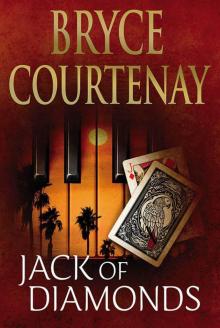 Jack of Diamonds
Jack of Diamonds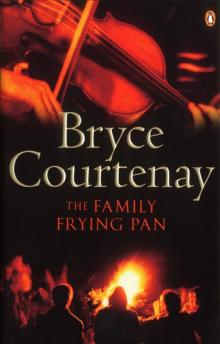 The Family Frying Pan
The Family Frying Pan April Fool's Day
April Fool's Day Smoky Joe's Cafe
Smoky Joe's Cafe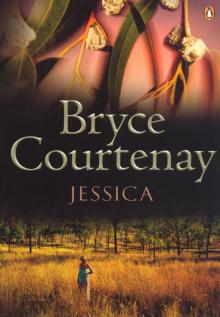 Jessica
Jessica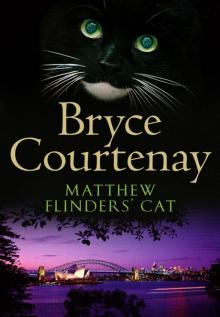 Matthew Flinders' Cat
Matthew Flinders' Cat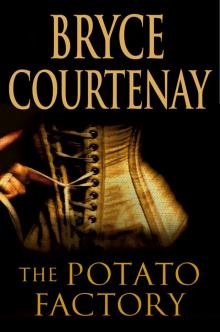 Potato Factory
Potato Factory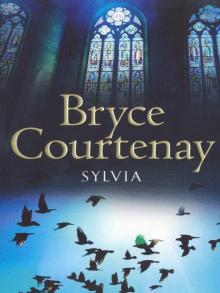 Sylvia
Sylvia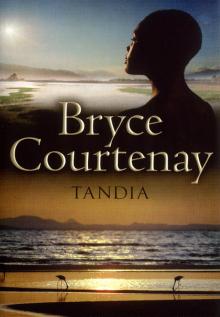 Tandia
Tandia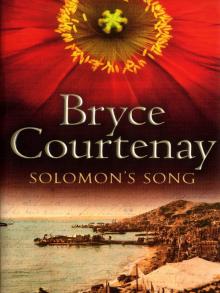 Solomon's Song
Solomon's Song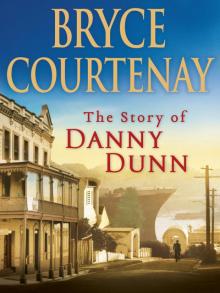 The Story of Danny Dunn
The Story of Danny Dunn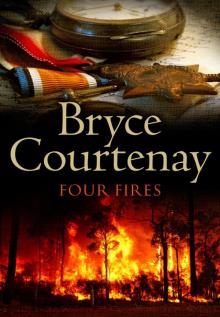 Four Fires
Four Fires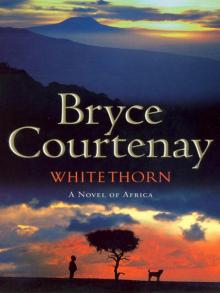 Whitethorn
Whitethorn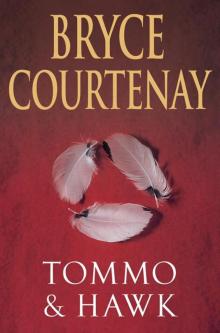 Tommo and Hawk
Tommo and Hawk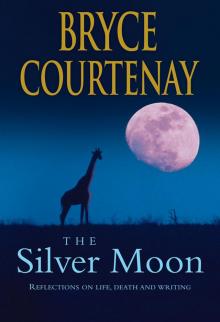 The Silver Moon
The Silver Moon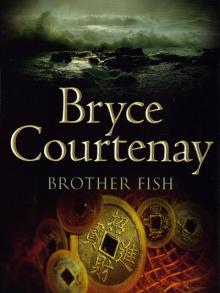 Brother Fish
Brother Fish FORTUNE COOKIE
FORTUNE COOKIE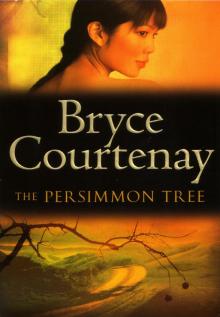 The Persimmon Tree
The Persimmon Tree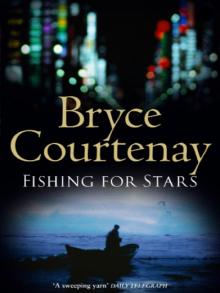 Fishing for Stars
Fishing for Stars